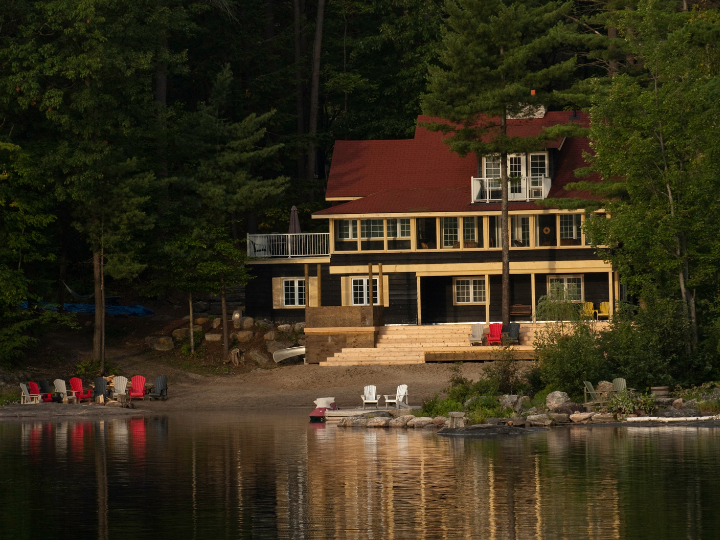What to Know Before Converting Your Home into a Rental Property
January 25th, 2023
Converting a home into a rental property can be a great way to generate income, but it also comes with its responsibilities and challenges. Being a landlord requires careful planning, attention to detail, and the ability to handle unexpected issues that may arise.
If you are considering turning your home into a rental property in Canada, this article will inform you about all the details. Learn about local laws and regulations, financing options, and the steps involved in marketing and managing property. Read on for an overview of what to know before taking the plunge into becoming a landlord.
1. Local Laws and Regulations
One of the first steps in converting your home into a rental property is to research the local laws and regulations that apply to landlords in your area. One example is zoning laws, which determine whether rentals are permitted in your neighborhood. Another consideration is the safety and habitability standard requirements to ensure the property is fit for human occupancy.
It is also important to familiarize yourself with landlord-tenant laws, which outline the rights and responsibilities of both parties. These laws can vary by province, so it is essential to research and understand the specific rules that apply to you. Some key considerations include eviction procedures, rent control, and security deposit policies.
For example, rental property increases are capped at 2.5% in Ontario for 2023. Suppose the monthly rent is $2,500, and your tenant signed a lease on September 1, 2022. The guideline for 2023 is 2.5%. Therefore:
- A 2.5% increase on $2,500 = $62.50
- $2,500 + $62.50 = $2,562.50
Hence, you could lawfully increase the rent payment in 12 months on September 1, 2023, up to $2,562.50.
2. Tax Implications
You will want to consider the tax implications of owning a rental property. Examples include paying income tax on the rent you receive and potentially being eligible for tax deductions on expenses related to the property. It is a good idea to consult with a tax professional to understand your obligations and potential tax benefits.
Suppose you change how you use property, such as turning a primary residence into a rental property. In that case, the law considers you to have sold the property and immediately repurchased it for the same amount.
You must report any resulting capital gain or loss when the change occurs. If the property was your primary residence before you changed its purpose, you do not have to pay tax for those years’ gain. You only have to report the revenue for the years the property was not your primary residence.
3. Financing Options
Once you have researched and determined converting your home into a rental property is viable, the next step is to consider the financing options available to you. You may obtain a traditional mortgage to cover the conversion cost depending on your financial situation. However, alternative lending options exist, such as home equity loans or private mortgages.
In addition to the cost of the mortgage itself, you will need to budget for any renovations or upgrades that may be necessary to make the property rental-ready. You could include anything from cosmetic updates to repairs.
Estimating your potential income and expenses is crucial to determine the rental property’s profitability. Decide on a realistic price to charge for rent and give an idea of how much you will need to set aside for repairs, maintenance, and other ongoing expenses. Finally, review the terms of any mortgage or loan you take out carefully to ensure it aligns with your financial goals and risk tolerance.
4. How to Write a Lease Agreement
A residential agreement is a legally binding contract outlining the tenancy terms between a landlord and tenant. In Canada, you must include specific provisions in a residential tenancy agreement. These provisions include:
- The names of the landlord and tenant
- The address of the rental property
- The term of the tenancy (e.g., month-to-month, fixed-term)
- The amount of rent and due date
- Any rules or regulations regarding the use of the property (e.g., obtaining renter’s insurance)
- The responsibilities of the landlord and tenant concerning maintenance and repairs
- The process for making changes to the tenancy agreement
- The process for ending the tenancy
Ensure the tenancy agreement is clear and easy to understand, and the landlord and tenant fully understand their rights and responsibilities under the contract. Rental agreement standards may differ across provinces. For example, in Ontario, landlords must use the standardized lease form.
5. Rental Property Marketing
Once you have completed the conversion and any necessary renovations, it is time to start marketing the property to potential tenants. One of the first steps is determining your rental’s target market. Examples might include students, families, professionals, or retirees, depending on the location and amenities of the property.
Competitive pricing is also key to attracting tenants. Research comparable rentals in the area to understand the going rate. It can also be helpful to work with a real estate agent or property management company to handle the marketing and leasing process.
You can use various channels for advertising your rental property, including online listings, local classifieds, and social media. Be sure to include high-quality photos and a thorough description of the property and its features to entice potential renters.
6. Potential Tenants Screening
Once you start receiving inquiries about your rental property, screen potential tenants to ensure you choose the best fit for your property. Ask the right questions during the application process, such as employment and rental history.
It is also essential to ensure the tenant can afford the rent. You will need to verify their income and credit score to understand their financial stability. Finally, check references from previous landlords and employers.
By screening potential tenants thoroughly, you can minimize the risk of issues arising down the line and increase the chances of a successful landlord-tenant relationship. Conducting a background check is also a good idea to verify the application’s information and identify any potential red flags. You could include a criminal record, a history of evictions, or nonpayment of rent.
7. Property Maintenance
Once you have successfully rented out your property, maintain the property and handle any issues with tenants. You can minimize the risk of disputes by maintaining the property and handling tenants effectively. Handle repairs and maintenance on time to ensure the property remains safe and habitable for your tenants.
Effective communication with your tenants is also key to a successful landlord-tenant relationship. Establish clear lines of communication, such as using a property management app or regular check-ins, to address any concerns or issues. Enforcing rules and regulations, such as late payment policies, is crucial in being a landlord. It is essential to be firm but fair in enforcing these rules to protect you and your tenants.
8. Insurance for the Rental Property
When you convert your property into a rental, you must update your insurance coverage to reflect the new use of the property. A standard homeowners insurance policy may not provide adequate protection for a rental property, as it typically does not cover damages resulting from tenant actions or failure to maintain the property.
It is ideal to speak with your insurance company or a licensed insurance broker to discuss your options for rental property insurance. This type of policy typically covers property damage and liability for injuries or accidents on the property. It may also cover lost rental income if the property becomes uninhabitable due to a covered loss.
Be sure to provide your insurance provider with accurate information about the property, such as the number of units and type of tenants you will be renting to. It is also a good idea to review your insurance policy regularly to ensure it still meets your needs as a landlord. As the property changes over time, your insurance needs may also change.
Conclusion
In conclusion, converting a home into a rental property can be a great way to generate passive income. But it also comes with responsibilities and challenges. Its vital to research local laws and regulations, carefully consider financing options, and effectively market and screen potential tenants. Maintaining the property and handling tenants is also key to a positive rental experience for you and your tenants. Planning and preparing can increase the chances of a successful and profitable rental property in Canada.
If you plan on turning your home into a rental property in Canada, protecting your investment with the right insurance coverage is essential. Contact Duliban Insurance to learn more about your options and find a policy that fits your specific needs and budget. Our team of professionals is here to help you navigate the process and ensure your property is adequately protected.
Our team of insurance professionals ensures that YOU receive the best coverage possible at the very best price.












